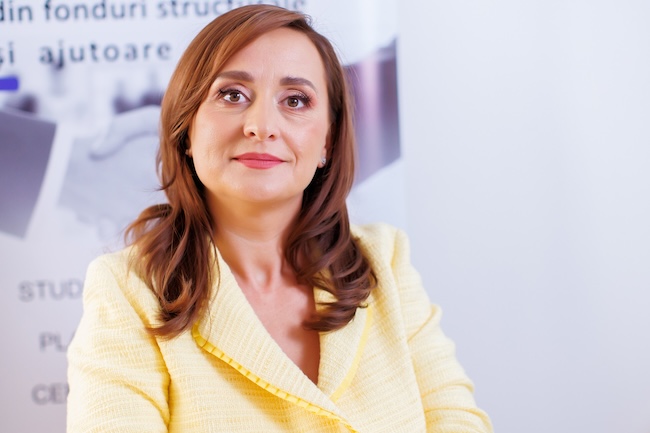The New Union Customs Code: Romania has several years ahead before full transition to an electronic system
After more than twenty years since the last major changes to the customs legislation, the European Union will change its Customs Code. The new provisions that will reform customs legislation will take effect on May 1st, 2016.
The companies involved in foreign trade operations are directly affected by the new provisions.
They should act early this year to comply with the new changes in order to avoid discontinuing / changing in mid-2016 they ways they are currently conducting customs clearance.
Deloitte, together with European Commission specialists and over 160 business representatives, discussed the impact of adopting the new Union Customs Code.
The event took place on March 31st, 2015, at the Intercontinental Hotel in Bucharest.
The event, organized with the support of BusinessMark, emphasized the primary role of the new Customs Code, which aims at reorienting the customs activity to a fully electronic system and environment. The Union Customs Code establishes new customs legislation with significant impact for businesses starting on May 1st, 2016.
The speakers of the event were: Frank Janssens - European Commission, Head of Unit A3: Customs Procedures & Project Management, Fernand Rutten - Deloitte Belgium, Customs Partner and International Commerce, Pieter Wessel – Financial Services Partner, Deloitte Romania, Mihai Petre – Senior Manager Financial Services, Deloitte Romania, Daniela Neagoe – Senior Consultant Financial Services, Deloitte Romania, and Ioana Lira – Senior Consultant Financial Services , Deloitte Romania.
Pieter Wessel – Financial Services Partner, Deloitte Romania, was the first speaker of the conference, and he made a brief review of the history of the customs union in Europe.
"In 1957, the Treaty of Rome established the European Economic Community, which proclaimed the free movement of goods, services and workers. In January 1968, the customs union was established, prohibiting domestic duties and imposing a common customs tariff in relations with third countries", said Pieter Wessel.
He recalled the benefits established in 1985 by the White Paper of Commissioner Lord Cockfield, who argued: "How great would progress be, if trade and industry in Europe could take place with a single unhampered market. The task is to remove all barriers: physical, technical and fiscal, that divide Europe, making it unable to operate as a single economic unit."
"I’ve been living in Romania for 6 years and I have witnessed the changes made recently. I am sure that Romania is heading in the right direction. I like Romania, I hope to raise my children here, but there are things to be improved, especially in the legislative field. We have an obligation to use the system properly, as far as our business is concerned, but not only”,Pieter Wessel added.
Frank Janssens, European Commission, Head of Unit A3: Customs Procedures & Project Management, also believes that Romania has progressed in many ways.
"Things are going well in Romania, and we hope that the new customs legislation will contribute to the development of the European economy. The implementation of the new Customs Code does not mean that everything will change from May 2016. Things will be changing gradually until December 2020. The important thing is that we transition to compulsory electronic data processing", explained Frank Janssens.
He emphasized the importance of harmonization, adding that currently there are differences from one Member State to another.
”About 95% have already been harmonized, but we must continue. Companies that are active in several Member States must have a common method for all countries concerned. IT systems are somewhat different, and not all Member States will have available systems by May 2016. We are preparing the specific legislative basis for this. Special waivers will be granted, generally for geographic location. For example, in Malta, railroad transport is not available. Therefore, it is important to avoid spending time and money on useless matters”,Frank Janssens added.
"If you request an authorization for the EU, you will have to apply using a dedicated portal. The information exchange will be immediately accessible to those involved in trade. This will allow the tradesman to get quick access. There are countless meetings at the moment to sort out this issue. Information will be available in electronic format. We have to transition to the electronic environment because paper records will not be permitted after the transition period”,Frank Janssens explained.
According to him, Romania still has several years ahead before completing the transition to an electronic system, which will cover all export and import operations.
”What is the purpose of the Customs Code? First of all, facilitating fair, legitimate trade. Secondly, the need to provide more safety and security. We need to focus on those who will not follow the rules. The shift of accountability on the shoulders of companies is obvious. The concept of this Code is to lower the number of customs agents. With fewer people, it will be possible to do more. Obviously, the Customs Code also aims to ensure a "paperless" environment for international trade”, Fernand Rutten (Deloitte Belgium, Customs Partner and International Commerce) stated.
He also presented the list of 58 countries that have implemented similar programs based on the concept of Authorized Economic Operator (AEO), such as the US, Japan, Canada. AEO program will be further implemented in other 10 countries: Botswana, Chile, Ecuador, El Salvador, Macedonia, Morocco, Indonesia, Serbia, Tunisia and Seychelles.
"Binding Tariff Information (BTI) is a very important tool available to economic operators. It may be used in any customs office in the Union, and eliminates discussions with customs authorities upon importation on the tariff classification of products, enabling the correct use of tariff codes”,Mihai Petre (Senior Manager, Financial Services, Deloitte Romania) said.
According to him, there are over 250,000 valid BTI at the moment in the Union, while in Romania there are only 1,300.
"90% of the litigations currently involving the customs authority are the result of tariff classifications issues. It is a very subjective matter and it is often placed in the hands of the customs commissioner. BTI is a procedure that ensures us, as a society, that we will not have litigations on tariff classification in the near future. There are zero risks of receiving adjustments in case of a checkup. What is unpleasant is that there are only 1,300 BTIs in Romania at the moment”,Mihai Petre added.
The Deloitte representative also stated that from 2016, BTIs will be valid for 3 years and will be mandatory not only for customs authorities, but also for economic operators.
”The customs declaration shall be required for all goods intended to be placed under a customs regime, except for the free zone regime. Special customs regimes are reclassified into three categories: transit, specific use and processing”,Daniela Neagoe (Senior Consultant, Financial Services, Deloitte Romania) explained.
Daniela Neagoe also provided information on customs duty.
”Customs duty is applied on importation or in case of non-compliance with the obligations laid down in customs legislation. The new Customs Code includes a new provision according to which the customs duty is erased provided that failure to comply with customs obligations has no significant consequences on the correct operation of the regime declared, is not a fraudulent attempt, and all the necessary formalities to regulate the situation of goods are later fulfilled”, the Deloitte Senior Consultant added.
Ioana Lira, Senior Consultant, Fiscal Services, Deloitte Romania, spoke about updates generated by Regulation no. 3633/2014 concerning customs representation.
”Customs representation was restricted to customs commissioners until last year. Currently, direct representation is accessible to any person. Indirect representation can be achieved only by Romanian legal entities authorized to operate as a customs commissioner. Romanian legal entities, other than those authorized to operate as a customs commissioner, can act as an indirect representative only if they are mandated by one person”,Ioana Lira explained.
She also highlighted the advantages of AEO: secure supply chain, reducing guarantees, not paying VAT on imports, simplification, special procedures, competence, professionalism, safety and security.
The conference was divided into four sessions in which the most important changes in the new Union Customs Code were discussed and their implications on the economic agents involved in foreign trade operations.






.jpg)